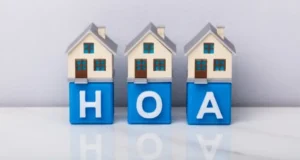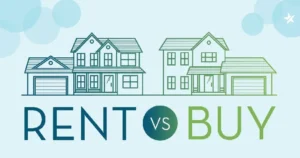Refinancing a mortgage can be a valuable financial tool, particularly in today’s volatile housing market.
With interest rates fluctuating and home values still adjusting after a period of significant growth, many homeowners are asking if now is the right time to refinance their mortgage.
Refinancing can save you money, help you pay off your loan sooner, or allow you to access your home’s equity. However, it’s essential to understand the current market conditions, interest rates, and how refinancing could impact your finances before making a decision.
In this article, we will explore the current mortgage refinancing environment, examine the latest statistics, and offer guidance on whether refinancing makes sense for you today.
What Is Refinancing?
Mortgage refinancing involves replacing your current home loan with a new one, ideally at a lower interest rate or more favorable terms. Homeowners refinance for several reasons, such as:
- Lowering monthly mortgage payments: By securing a lower interest rate, you can reduce your monthly mortgage costs.
- Shortening the loan term: Some borrowers refinance to switch from a 30-year mortgage to a 15-year mortgage, enabling them to pay off their home more quickly.
- Switching loan types: You may want to switch from an adjustable-rate mortgage (ARM) to a fixed-rate mortgage for more stability.
- Accessing home equity: Cash-out refinancing allows you to take equity out of your home and use the funds for renovations, paying off high-interest debt, or other financial goals.
Current Mortgage Rates and the Housing Market
As of late 2024, mortgage rates remain elevated compared to the historical lows seen in 2020-2021. The Federal Reserve’s attempts to control inflation have resulted in higher interest rates, which affects both new mortgages and refinancing options. According to Freddie Mac, the current average interest rate for a 30-year fixed mortgage is around 7.5%, while the rate for a 15-year mortgage is approximately 6.8%.
Mortgage Refinance Trends:
- Refinancing Activity Decline: Due to rising rates, mortgage refinancing activity has dropped by 60% since the height of the pandemic, when interest rates were at record lows.
- Cash-Out Refinancing Increases: However, cash-out refinancing remains relatively popular, with homeowners tapping into their home equity despite higher rates.
Key Considerations When Refinancing
Before refinancing your mortgage, there are several factors to consider:
- Interest Rates: Are the current rates lower than what you’re paying on your existing mortgage? If so, refinancing may be worth it.
- Closing Costs: Refinancing comes with fees, including closing costs, which typically range from 2-5% of the loan amount. You’ll need to calculate how long it will take for the savings from a lower rate to offset these costs.
- Loan Term: Consider whether you want to extend or shorten the term of your mortgage. Shortening the term can increase monthly payments but saves significant interest over the life of the loan.
- Credit Score: Your credit score will affect the rate you qualify for. Borrowers with higher credit scores typically receive better rates, so it may be worth improving your credit before refinancing.
Is Now the Right Time to Refinance?
Whether now is the right time to refinance depends on your personal financial situation and your current mortgage. While rates are higher than in recent years, they may still be favorable if you’re looking to switch loan types or access home equity. Here’s a breakdown of some scenarios where refinancing makes sense today:
1. Switching from an Adjustable-Rate to Fixed-Rate Mortgage
If you have an ARM and your interest rate is set to increase soon, refinancing to a fixed-rate mortgage could save you money in the long term. Locking in a fixed rate now provides predictability in your payments, which is valuable in a rising rate environment.
2. Lowering Your Interest Rate
If your current mortgage rate is significantly higher than today’s rates, refinancing could still lower your monthly payments, even with the closing costs involved.
3. Cash-Out Refinancing
If you’ve built substantial equity in your home and need cash for home improvements, paying off debt, or other large expenses, a cash-out refinance could be a viable option. While rates are higher than in recent years, this option is still preferable to high-interest personal loans or credit cards.
4. Shortening Your Loan Term
Refinancing to a shorter loan term, such as moving from a 30-year to a 15-year mortgage, can save you thousands in interest payments over time. However, keep in mind that your monthly payments will likely be higher.
Expert Insight:
“Homeowners should carefully assess their financial situation and goals before refinancing, especially in today’s higher rate environment,” says Jason Brooks, a senior loan officer at Elite Mortgage Advisors. “It’s crucial to calculate the breakeven point and ensure the long-term savings outweigh the upfront costs.”
Mortgage Refinance Statistics (2024)
| Statistic | Figure |
|---|---|
| Average 30-year fixed mortgage rate (2024) | 7.5% |
| Average 15-year fixed mortgage rate (2024) | 6.8% |
| Decline in refinance activity since 2021 | 60% |
| Percentage of refinancing for cash-out purposes | 50% |
| Typical closing costs for refinancing | 2-5% of loan amount |
Benefits of Refinancing Today
Refinancing your mortgage can offer significant benefits, especially if your financial situation has changed or if you want to adjust your loan type. Some key benefits include:
- Lower Monthly Payments: Refinancing at a lower rate can reduce your monthly payments, freeing up cash for other expenses.
- Accessing Home Equity: With cash-out refinancing, you can access the equity in your home for home improvements or debt consolidation.
- Switching Loan Terms: Changing from a 30-year loan to a 15-year mortgage helps you pay off your home faster, potentially saving thousands in interest.
- Stabilizing Your Payments: If you have an adjustable-rate mortgage, switching to a fixed-rate loan can provide more stability, especially in a volatile rate environment.
Drawbacks of Refinancing
While refinancing can offer many benefits, it’s not the right choice for everyone. Some potential drawbacks include:
- Higher Monthly Payments (with a Shorter Term): If you refinance to a shorter loan term, your monthly payments could increase, even if you’re paying less in interest over time.
- Closing Costs: The upfront costs of refinancing can be significant, and it may take several years before you break even and start to see savings.
- Resetting the Loan Term: Refinancing resets your mortgage term, which means you could be extending your payments for a longer period, even if you reduce the monthly payment amount.
How to Apply for a Refinance
If you’ve determined that refinancing is right for you, the application process is similar to applying for your original mortgage. Here are the basic steps:
- Check Your Credit: Ensure your credit score is in good shape, as this will impact your new interest rate.
- Gather Your Documents: Just like with your initial mortgage, you’ll need to provide documents such as tax returns, pay stubs, and proof of employment.
- Shop for Lenders: Get quotes from at least three different lenders to compare rates and closing costs.
- Calculate Your Breakeven Point: Determine how long it will take for the savings from your new mortgage to offset the closing costs.
Expert Insight:
“Refinancing can be a smart move, but it’s not a one-size-fits-all solution,” says Emily Larson, mortgage consultant at Summit Lending Solutions. “Homeowners need to factor in their long-term goals and consider how refinancing aligns with their financial plan.”
FAQs About Refinancing a Mortgage
1. Is refinancing worth it with current rates?
It depends on your financial situation. If you can secure a lower rate or need to access equity, refinancing could still make sense even with higher rates than in recent years.
2. How much does refinancing cost?
Refinancing typically costs between 2-5% of the loan amount. These costs include lender fees, appraisal fees, and closing costs.
3. How soon can I refinance after getting a mortgage?
Most lenders require you to wait 6-12 months before refinancing, though this may vary depending on the lender.
4. Will refinancing affect my credit score?
Yes, applying for refinancing results in a hard inquiry on your credit report, which can temporarily lower your score by a few points.
5. Can I refinance if my home’s value has decreased?
If your home’s value has dropped, it may be harder to refinance unless you have significant equity or qualify for a government-backed program like HARP.
6. Can I refinance to get rid of private mortgage insurance (PMI)?
Yes, if your home has appreciated and you now have at least 20% equity, you can refinance to eliminate PMI.
7. How do I calculate the breakeven point for refinancing?
Divide your total closing costs by the amount you’ll save each month. The result is the number of months it will take for you to recover the costs of refinancing.
8. Can I refinance with bad credit?
It’s possible, but you may not get the best rates. Consider improving your credit score before refinancing to ensure you qualify for better terms.














